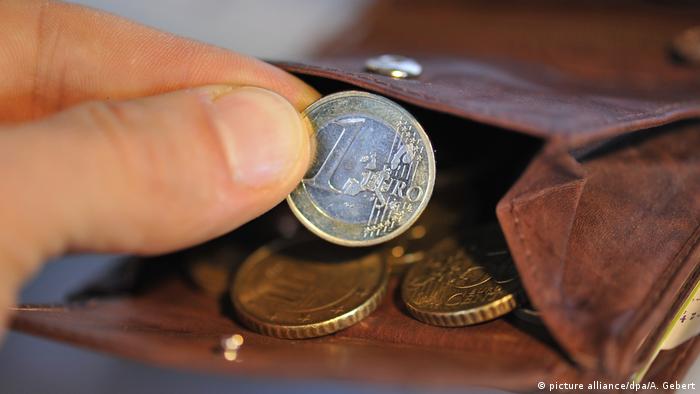
Germany's minimum wage will be raised over several stages, officials announced on Tuesday, eventually amounting to €10.45 ($11.74) per hour by mid-2022.
The talks on raising the minimum wage in Germany were "partly controversial" as members of the country's official commission wrangled over the sum, said commission head Jan Zilius.
However, after prolonging the talks and canceling one press conference last minute, the representatives of both employers and workers' unions unanimously agreed to boost the minimum wage from the current €9.35 to €10.45 by July 2022.
The minimum wage will be gradually increased over four stages, with the first bump set to take place in January 2021.
German Labor Minister Hubertus Heil said the government would implement the recommendation.
Read more: EU launches 'fair minimum wage' initiative
With the German economy reeling under the impact of the coronavirus pandemic, many employers have warned that raising the minimum wage too much would make it harder to hire people during the recovery phase.
The economy council of Chancellor Angela Merkel's conservative CDU party described it as a "millstone" for the business, according to a report published by the newspapers of the Funke media group.
In turn, workers' representatives said the raise would give boost to spending among some two people in the lowest income bracket. Following the Tuesday decision, the opposition Left and Green parties said the increase was too small.
Read more: Germany's minimum wage spurred productivity, but hit small firms
Germany's 'success story'
Labor Minister Heil, however, said there will be more minimum wage reforms coming this fall.
"The minimum wage must not fall behind," said the politician from the left-leaning SPD party, which is the junior partner in Merkel's ruling coalition.
Germany only introduced the minimum wage regulation in 2015. On Tuesday, Heil said it has been a "success story, that needs to keep being written" and that the state should work towards bringing it closer to €12 per hour.
The upcoming raise is set to be implemented in four stages, with the first increase set for January next year.
dj/rs (KNA, Reuters, dpa)
No comments:
Post a Comment